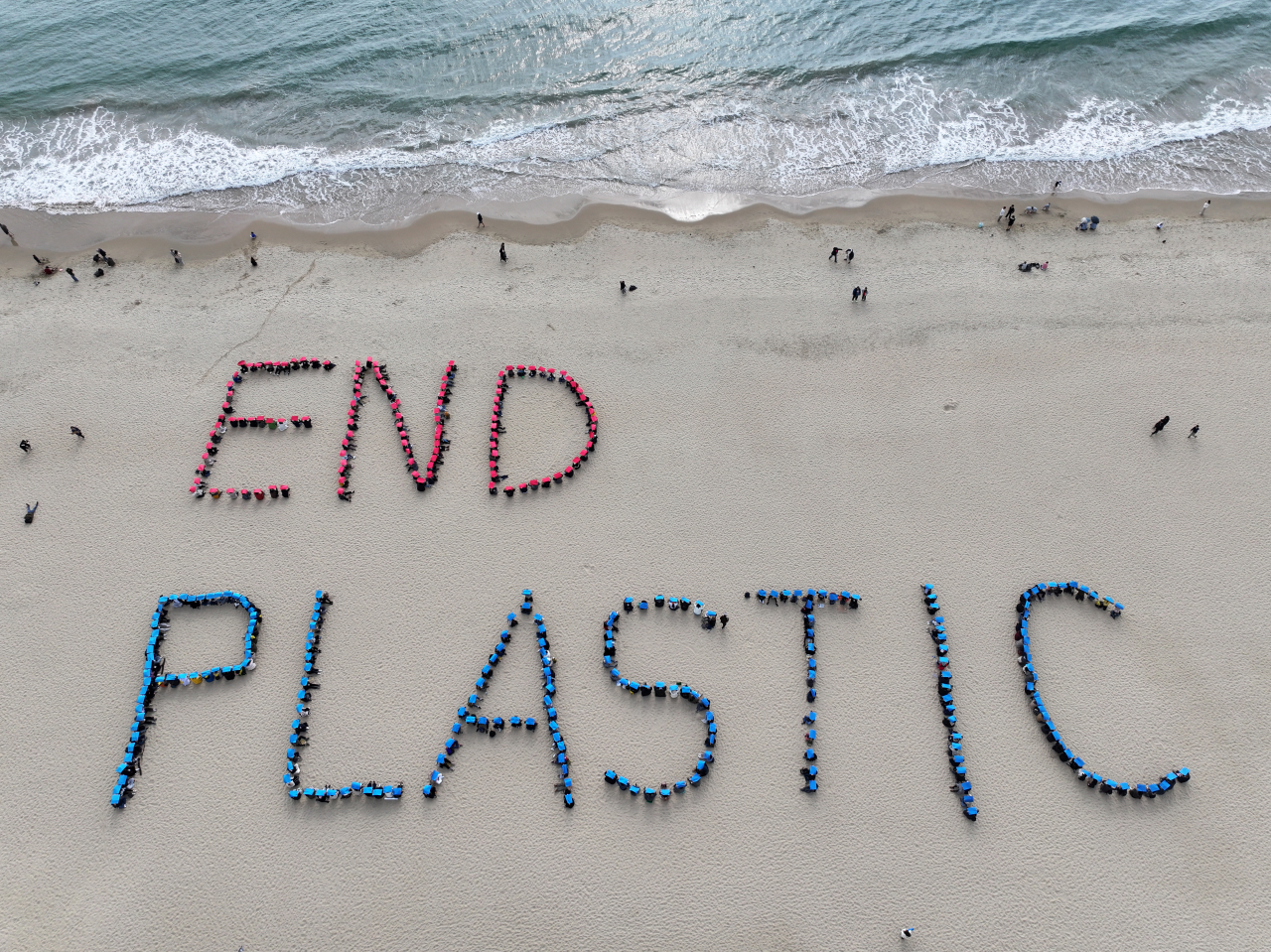Final push to forge UN treaty on plastic pollution set to begin in Busan
Published : 2024-11-24 15:33:03

All eyes turn to Busan as delegations from 175 countries gather for the final round of negotiations to clinch a legally binding United Nations treaty to combat plastic pollution.
Kicking off Monday and running through Dec. 1, the fifth session of the Intergovernmental Negotiating Committee could define the global response to one of the most pressing environmental challenges of our time.
The initiative stems from a resolution passed during the UN Environment Assembly meeting in March 2022, which aims to create a legally binding international treaty by the end of 2024 that addresses plastic pollution.
According to the government, the South Korean delegation will be led by Environment Minister Kim Wan-sup, featuring representatives from the Ministry of Foreign Affairs, the Ministry of Environment, the Ministry of Trade, Industry and Energy, and the Ministry of Oceans and Fisheries.
While the previous INCs were led by a South Korean foreign minister, Foreign Minister Cho Tae-yul cannot attend this round of talks as he will be attending the Group of Seven Foreign Ministers’ meeting.
The INC-5 marks the final round of negotiations where delegations are expected to finalize the treaty text. Once established, the treaty on plastic pollution is expected to hold as much environmental significance as the UN Framework Convention on Climate Change signed in 1992.
However, with challenging circumstances surrounding the treaty, it remains unclear whether delegations will reach a deal in Busan or whether talks will have to be extended for another year.
Previously, during a press briefing on Nov. 19, an Environment Ministry official told the press that negotiations remain “deadlocked due to sharp conflict between countries which consume and produce plastics on the topic of regulating the production of raw plastic materials.”
Countries that produce plastics, such as Saudi Arabia and Iran, are also members of the Global Coalition for Plastics Sustainability. They stand against regulating the production of raw materials that could hurt their economies and instead emphasize waste management and recycling as solutions to plastic pollution.
Some member states of the High Ambition Coalition argue that the production of primary polymers should be reduced. However, countries like Japan and the US, which are HAC member states, remain neutral, leaving such decisions to a country's discretion.
Other questions remain regarding which chemicals should be banned to control plastic pollution, how countries will partake in funding for the global implementation of what’s been agreed during the INCs, and whether the agreement will impose binding obligations or allow for voluntary action on signatories.
While South Korea is an HAC member state, its stance is also unclear. This is because the Environment Minister was quoted as saying Korea should “move toward waste reduction rather than waste management” in relation to the plastic pollution treaty during a press briefing on Nov. 4.
Rather than pushing for a specific stance in the negotiations, local media reports have speculated that Korea would focus on its role as the host nation to finalize the agreement, prioritizing narrowing down differences among participating countries to achieve consensus.
During the Environment Ministry’s press briefing on Nov. 19, an official stated that the South Korean delegation is “prepared to present compromise plans if deemed necessary.”
The Environment Ministry also announced Sunday that it would launch the Sustainable Plastic Circular Economy Initiative” to establish a circular economy that addresses the entire life cycle of plastics, from production and consumption to recycling. To share Korea’s policies and technologies surrounding the plastic circular economy, the ministry stated it would host the “Rethinking Plastic Life” event from Monday to Friday at the INC-5 venue in Busan.
If an agreement is finalized by the end of the INC-5, the final draft of the treaty will be announced during the UN Diplomatic Conference of Plenipotentiaries, slated for June 2025. However, if an agreement is not finalized, negotiations may be extended for two to six months.
The outcome of the talks is expected to become clearer during the final plenary session of the INC-5 on Dec. 1.
http://www.koreaherald.com/common/newsprint.php?ud=20241124050019